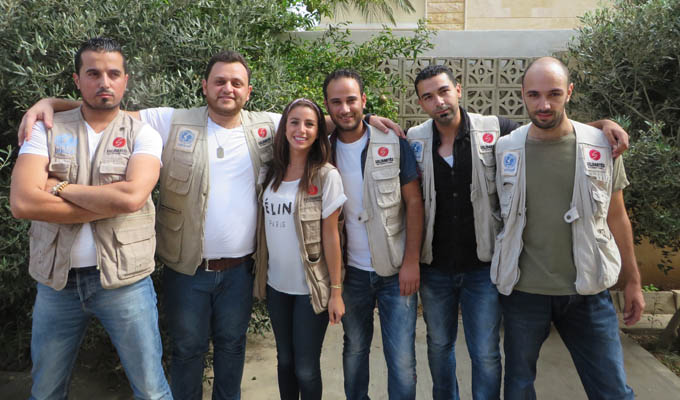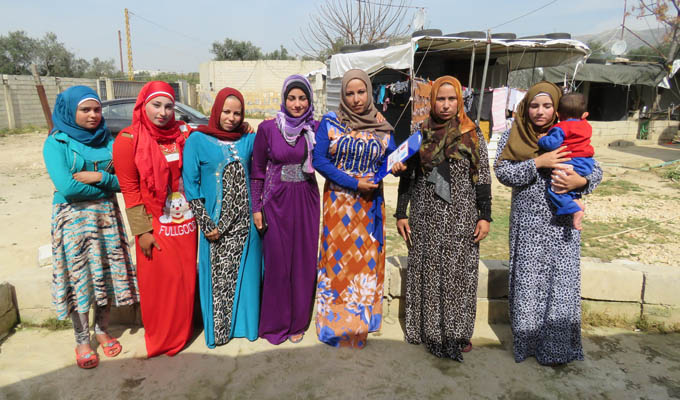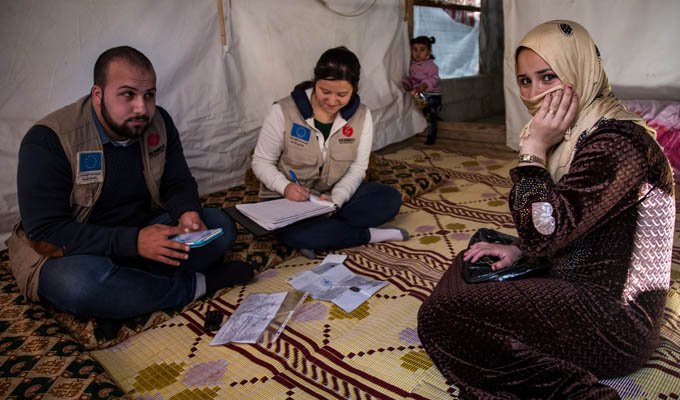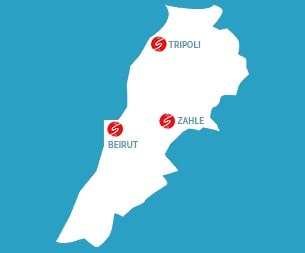At headquarters or in the field, many women work for SOLIDARITÉS INTERNATIONAL. On World Women’s Day, three women in Lebanon, beneficiary and staff, tell us of their situation.

Nour and her team
Aid worker: a job for strong personalities
Nour Adib, 24, joined the water, sanitation and hygiene (WASH) team as informal settlement team manager. She wanted to be a part of the field team. “I love my work in the field. IN the end, it’s not that difficult for a woman, but you do need a strong personality.” Through her experience, she has had to face all sorts of situations and interactions with beneficiaries, local authority representatives and contractors. “In the beginning, the contractors didn’t take me seriously. Other times, beneficiaries can’t believe I have such a high position within SOLIDARITÉS INTERNATIONAL. Now they know me, they know who I am and I think I can be tougher than the men in my team! But I like the challenge.”

Fteim and her team
The importance of gender equality
Within a male team, Nour has found her place. “The boys on the team have been very available and have always helped me in my work. At first, Ahmad, the activity manager, was even protective and treated me differently, for security reasons. Now they are like brothers. They can be protective and thoughtful, and they respect me.”
In Alma camp near Tripoli, Fteim is part of the camp’s WASH committee. “I am a proud person and other women are proud of what I have accomplished. The men know I’m brave and able to do the same job as they do. As a matter of fact, when they have a problem, the men in the camp tend to come to me directly.”

Hazar, during an interview with a beneficiary
“In our culture, women confide more with other women”
Being a woman can help obtain better beneficiary identification. “Women refugees are more relaxed and share their needs and the reality of their situation,” says Hazar, in charge of helping families assess their needs in terms of cash or other items (dignity hygiene kits, blankets, sanitation, etc.)
Hazar believes she shows a lot of empathy, probably more than her male colleagues. Sometimes it helps, “when I can refer more cases and help more families,” though it is sometimes difficult to “witness harsh situations.”
Equality improves the global efficiency of our programmes. Day in, day out, Hazar, Nour and Fteim play a great part in building the image of women within SOLIDARITÉS INTERNATIONAL.
© Photos : Vianney Le Caer / SOLIDARITÉS INTERNATIONAL
Support our teams in the field
Lebanon
Context and action- 5.6 million inhabitants
- 112th out of 191 countries on the Human Development Index
- 122.148 people helped

